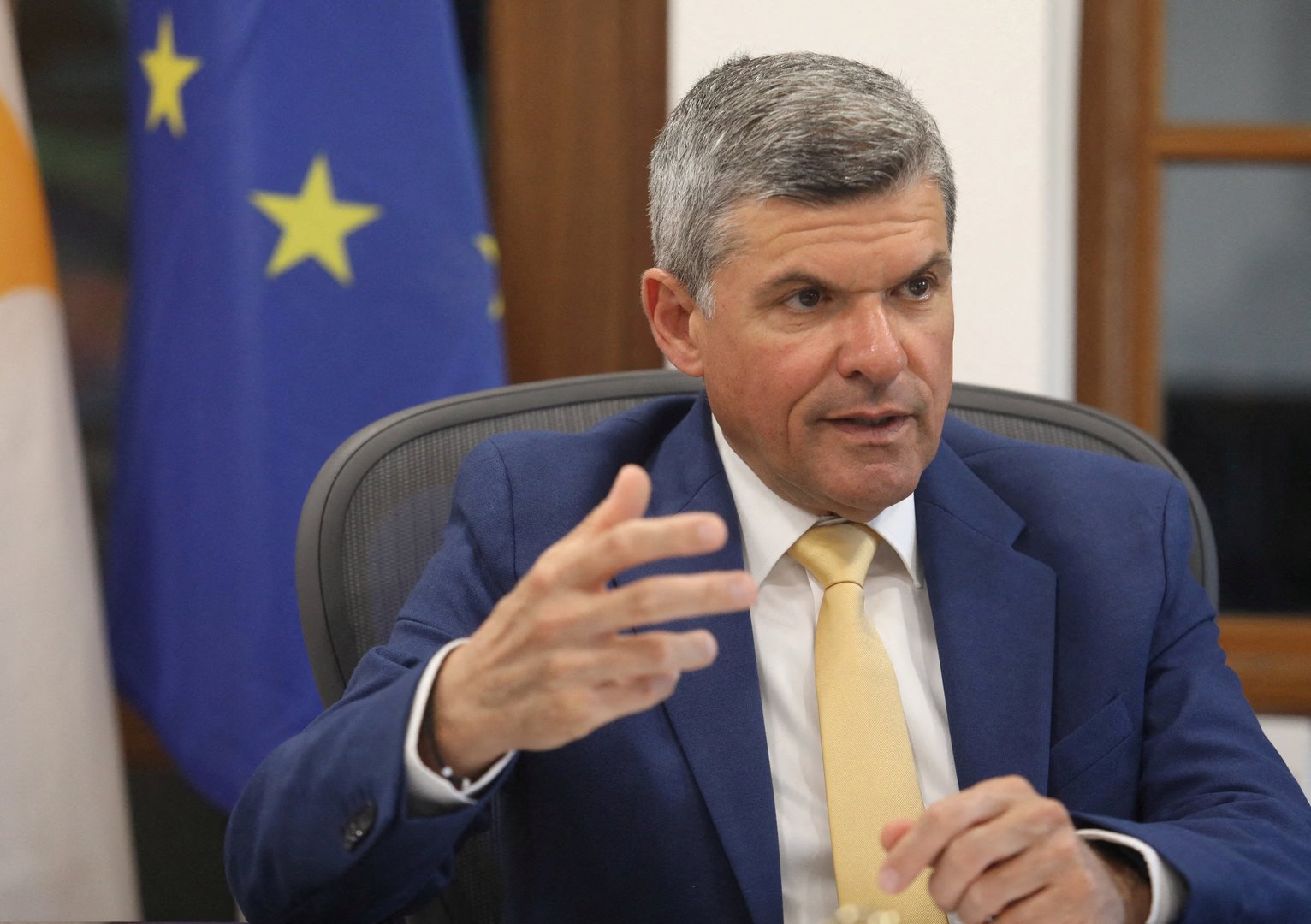The finance ministry has asked “reasonable questions” regarding the Great Sea Interconnector project in its letter to the energy ministry, Energy Minister George Papanastasiou said on Tuesday.
Speaking to CyBC radio, he moved to dispel reports of a disagreement between the finance ministry and his own ministry regarding the future of the project, describing them as “exaggerations” and “inventive scenarios”.
“The finance ministry was clear in its letters. We consider the questions to be reasonable, and we are proceeding with an answer. The rest is inventive publications,” he said, before adding that he has “absolutely no difference” of opinion with the finance ministry.
“Each ministry does its job. The finance ministry will find resources and we, the energy ministry, are monitoring the energy project and will answer the questions which were raised,” he said.
The finance ministry’s letter centres around a request made by Greece’s independent transmission system operator (Admie), asking that the Republic of Cyprus pay €25 million as part of its obligations regarding the project.
The €25m in question has been allocated by the government as part of the finance ministry’s budget, and as such, the energy ministry cannot touch it without the finance ministry’s express permission.
The amount is part of a total of €125 million worth of agreed payments to be made between 2025 and 2029 – before the interconnector is operational, in effect helping finance the project and ensuring that Admie will have a stable income while investing in the project before the project itself turns a profit.
The government had initially planned to utilise funds made available to it through the European Union’s emissions trading system (ETS) to make the payments, but Admie has now warned the Cypriot authorities that this arrangement may violate the EU’s rules on state aid, and as such has asked the Cyprus energy regulatory authority (Cera) to begin charging Cypriot consumers directly to finance them.
It was reported on Friday that the finance ministry had “absolutely refused” to pay any money to Admie for the interconnector, on account of the fact that the project is “frozen”.
News website Brief stated that the ministry had asked those involved “to state frankly whether the construction of the cable, without the relevant surveys, without deep-sea exploration, or even without the … resumption of the project obliges the Republic of Cyprus to bear any financial cost, and in particular to disburse the €25m”.
In addition, it said, the ministry had “asked to know whether any such commitment is included in the framework of any agreement which may have been concluded between the energy ministry and its counterpart in Athens”.
The report also quotes “technocrats” at the finance ministry as having warned that should the Cypriot government pay the €25m under the current conditions, with the project said to be “frozen”, a “precedent of financial commitment” could be set.
Such a precedent, the technocrats said, could lead the Republic of Cyprus “to at the end of the day being obliged to pay for a project which has been costed at €1.4 billion without being completed”.
“Why would the government accept that the Cypriot taxpayer bear such a large cost without, at the end of the day, the electrical interconnection being possible?”, the technocrats are quoted as having asked.
Meanwhile, newspaper Phileleftheros reported that the finance ministry had refused to pay the €25m Admie had requested, and that the ministry will not acquiesce to the payment “if Admie does not convince it that the project is progressing well not only at the Nexans factory, but in the sea”.
Nexans is the French company which is manufacturing the cables which are to be laid under the sea to connect the three countries’ electricity grids.
A meeting on the matter involving representatives of Admie, Cera, Greece’s energy regulatory authority (Raaey), and the European Commission’s directorate-general for energy has been scheduled for Wednesday.






Click here to change your cookie preferences